
How to Smudge with Sage & Native American Customs for Prayer
I've had several people inquire about practices and customs associated with smudging. I decided to cleanse myself today so I thought I'd make a short video on rituals I've learned over the years. This is by no means anything dogmatic. These are just methods that I've learned over the years. I'm Kiowa and Cherokee, and I've incorporated practices between both cultures and lessons I've learned personally through doing this routinely that work for me.I hope you enjoy the video. Please feel free to share with as many folks as you like, and if you have questions reach out to me in the comments. Wa'do, have a blessed day, and if you're interested in Native American fiction please support my debut novel, CALLING FOR A BLANKET DANCE: Bookshop, Amazon, B&N, IndieBound.https://www.youtube.com/watch?v=Z3GGFIfJY0Q
Tuning into the Nuances of the Void
There are two things most dangerous: apathy and stagnation. For me? The former leads to the latter. It's a cycle of violence I've always struggled to overcome. It's like when I'm gourd dancing with my family, and I'm trying to predict by cadence and rhythm the switching of the beat so I can anticipate the appropriate next move--a move which keeps me in sync with my community but ultimately with my choices.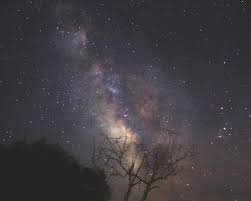 So that's a blend of artistry and pseudo-intellectualism to say something very simple: I get bored easily. I'll save the deep psychological reading of this behavior to my haters. They're likely more in tune with its nuances anyway.There are times in my life where I live in life and throw myself into passions deep and plentiful and I'm so deep in the subconscious I don't even have to breath. I've mutated, growing gills to pick up words and metaphors and I twist them into a story. Story gives me life.
So that's a blend of artistry and pseudo-intellectualism to say something very simple: I get bored easily. I'll save the deep psychological reading of this behavior to my haters. They're likely more in tune with its nuances anyway.There are times in my life where I live in life and throw myself into passions deep and plentiful and I'm so deep in the subconscious I don't even have to breath. I've mutated, growing gills to pick up words and metaphors and I twist them into a story. Story gives me life. Then there are times in my life where the void has no echo and the sound of my voice carries only inches from my mouth. If I screamed it would carry further, but I don't scream anyway so that doesn't matter. When the stagnation grows up my feet and grabs my ankles, through my veins and into my throat, my voice is lost. In desperation I can see apathy moving toward me like dark matter carrying a wave of asteroids ready to crush me. And you say the void has no noise. But it's loud. Louder than me, which is loud enough, and is the only decibel of importance.Then by sheer willpower, I lift my head, look at the computer screen, and write.
Then there are times in my life where the void has no echo and the sound of my voice carries only inches from my mouth. If I screamed it would carry further, but I don't scream anyway so that doesn't matter. When the stagnation grows up my feet and grabs my ankles, through my veins and into my throat, my voice is lost. In desperation I can see apathy moving toward me like dark matter carrying a wave of asteroids ready to crush me. And you say the void has no noise. But it's loud. Louder than me, which is loud enough, and is the only decibel of importance.Then by sheer willpower, I lift my head, look at the computer screen, and write.
Humanitarian Effort for the Rich: Hollywood's Humanizing Project
When I watch movies, I tend to watch independents. Sometimes I'll watch the Hollywood independents, if it looks like they're only going to modestly apply structuralism. I like to think I'm savvy. I don't want to feel like I'm a monkey watching for bananas, which Hollywood has turned into a science. If you don't know how structuralism has put your brain on repeat for the last five decades, hit me up on the comments below and I'll explain. This post is for Hollywood's newest charity: Save the Rich!I've noticed this trend for quite some time. Hollywood likes to showcase the uber-wealthy as their protagonists.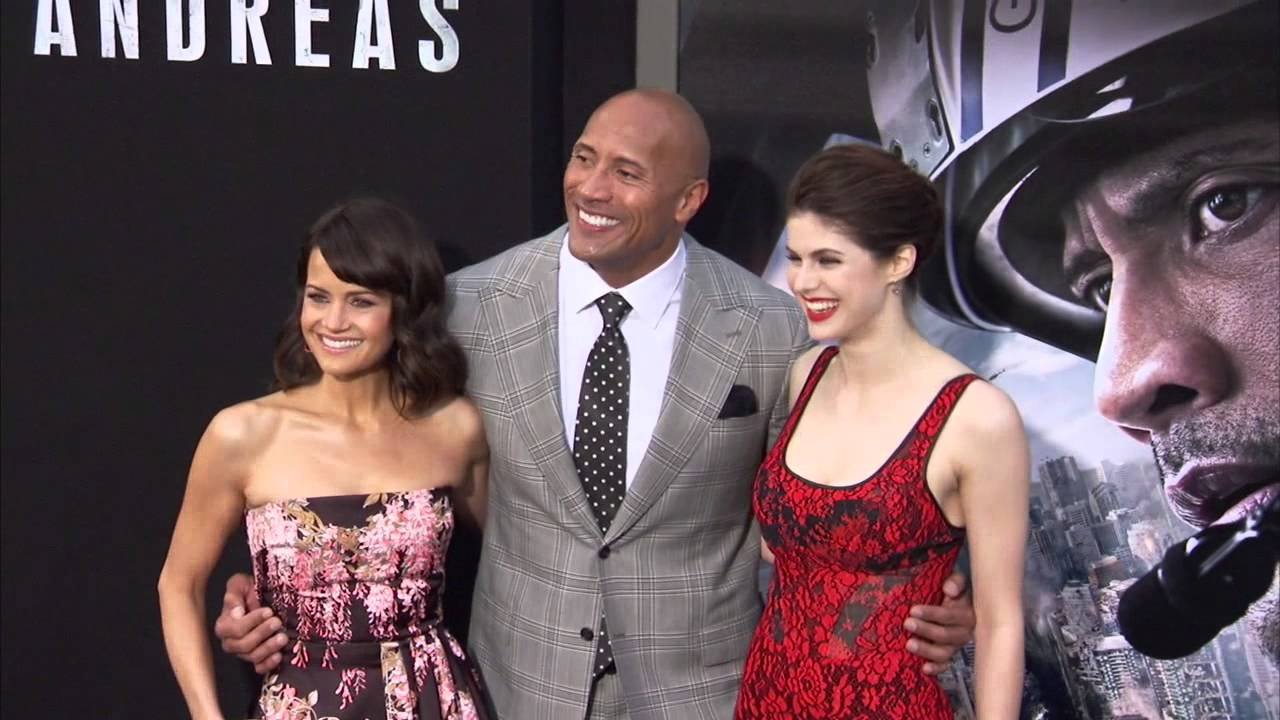 So my sons came back from Wal-Mart with the movie San Andreas. It stars Dewayne Johnson, otherwise known as The Roc. I'm not prone to watching these big Hollywood productions, but my sons were excited to watch the movie and it was entertaining enough. I watched to the end. I thought I was going to predict a few things and it was nice to find out I was wrong. I'm so overly focused on structuralism that sometimes I miss the connections.Then there was the hyper masculine motif that could not be balanced by vain attempts to masculinize one female character. Ultimately, it was a damsel in distress production. Nothing new there.
So my sons came back from Wal-Mart with the movie San Andreas. It stars Dewayne Johnson, otherwise known as The Roc. I'm not prone to watching these big Hollywood productions, but my sons were excited to watch the movie and it was entertaining enough. I watched to the end. I thought I was going to predict a few things and it was nice to find out I was wrong. I'm so overly focused on structuralism that sometimes I miss the connections.Then there was the hyper masculine motif that could not be balanced by vain attempts to masculinize one female character. Ultimately, it was a damsel in distress production. Nothing new there. What stood out to me most was all the poor people running around the collapsing cities, and for some reason none of those impoverished people could lead in this storyline. They had to make the main characters uber-wealthy, with jet setting and mansion living. They dined in high rise buildings and took first class airplane trips to volleyball games. These were seven figure folks. And as they ran past all those poor people in the cities (the ones who got crushed by buildings and water), I kept trying my hardest to empathize for these uppity rich people as they tried to escape with their lives. Because somehow their lives were so much more important than the lives of the average people who were trying to escape the same natural disaster. So much more important than our lives that the cameras were trained on them.So Hollywood wants you to feel sorry for the rich. Why would they be humanizing a small group of people who exploits everyone else on the planet? I'm sorry. I'm not trying to be callous. But why do the rich get this privileged treatment, while impoverished people are constantly demonized and dehumanized by news and popular media.Lucky, for my sons, they have a father who can teach them how to see through the veil. Is it just me? Or have you also noticed all the hyper wealthy characters on these movies? It seems like every movie has some type of rich person as the lead or emotionally connected to the lead person. It is so blatant it makes me wonder why Hollywood is working so hard to humanize this select group of people.
What stood out to me most was all the poor people running around the collapsing cities, and for some reason none of those impoverished people could lead in this storyline. They had to make the main characters uber-wealthy, with jet setting and mansion living. They dined in high rise buildings and took first class airplane trips to volleyball games. These were seven figure folks. And as they ran past all those poor people in the cities (the ones who got crushed by buildings and water), I kept trying my hardest to empathize for these uppity rich people as they tried to escape with their lives. Because somehow their lives were so much more important than the lives of the average people who were trying to escape the same natural disaster. So much more important than our lives that the cameras were trained on them.So Hollywood wants you to feel sorry for the rich. Why would they be humanizing a small group of people who exploits everyone else on the planet? I'm sorry. I'm not trying to be callous. But why do the rich get this privileged treatment, while impoverished people are constantly demonized and dehumanized by news and popular media.Lucky, for my sons, they have a father who can teach them how to see through the veil. Is it just me? Or have you also noticed all the hyper wealthy characters on these movies? It seems like every movie has some type of rich person as the lead or emotionally connected to the lead person. It is so blatant it makes me wonder why Hollywood is working so hard to humanize this select group of people.
Support a Native owned Etsy shop, Allies United, where I offer unique merch for allies of social justice movements, like MMIW, Native Lives Matter and Black Lives Matter. Take a look inside my Etsy shop here: etsy.com/shop/AlliesUnited.
Capitalism Down the Interstate
I was in grad school when a professor asked, "What metaphor would you use to describe how power structures stay intact?" We were studying Faucoult and had come to his explanation of how individuals give up their power to others, with his example of a moving ship and how everyone does their part to keep the ship moving forward and are in fear of what would happen if the ship stopped moving. I agree with Faucoult's analogy. It makes sense in most situations. In a modern context though, I'm thinking more along the lines of interstates.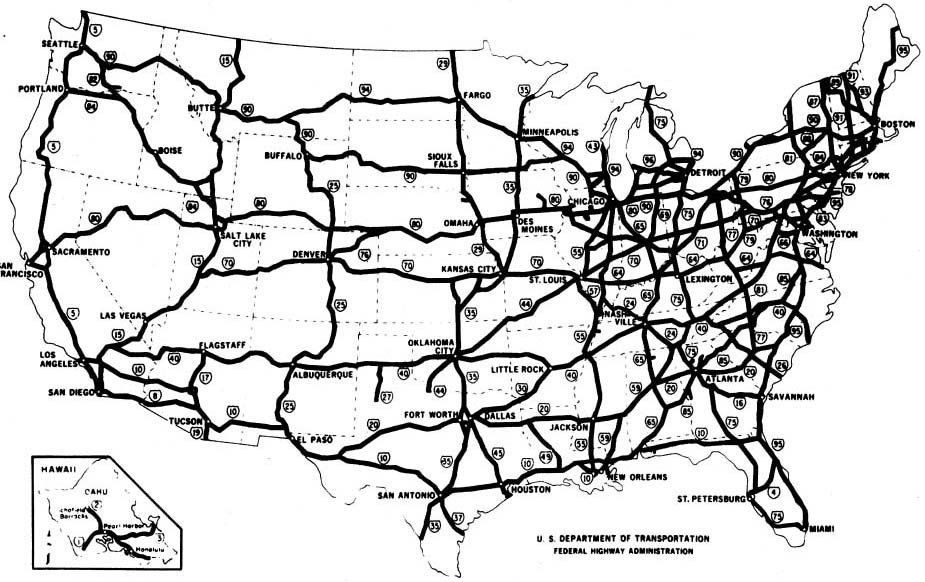 I'm about to head to Santa Fe, New Mexico from Tahlequah, Oklahoma next week. My oldest son is graduating from the Santa Fe Indian School. I've spent a lot of time on I-40 over the years. I grew up between Tahlequah and Lawton, OK, but moved out to Santa Fe, NM and spent 10 years out there before moving back to Tahlequah. My oldest three kids grew up out there.Staring at that road for long periods gives you opportunity to contemplate life's many questions. Not that I need to stare at a road to do that. My brain is hardwired for such reflection so a cup of coffee is enough to get me going. But as I've thought about the above question over the years I've attempted to apply several different metaphors to better grasp power dynamics in group formations.
I'm about to head to Santa Fe, New Mexico from Tahlequah, Oklahoma next week. My oldest son is graduating from the Santa Fe Indian School. I've spent a lot of time on I-40 over the years. I grew up between Tahlequah and Lawton, OK, but moved out to Santa Fe, NM and spent 10 years out there before moving back to Tahlequah. My oldest three kids grew up out there.Staring at that road for long periods gives you opportunity to contemplate life's many questions. Not that I need to stare at a road to do that. My brain is hardwired for such reflection so a cup of coffee is enough to get me going. But as I've thought about the above question over the years I've attempted to apply several different metaphors to better grasp power dynamics in group formations. The rules of road can be transferred to the subtle social rules subconsciously agreed upon between group members. As I sit behind the wheel and watch the road pass me by, I'm constantly aware of the rules of road and which will keep me safe. When you're going 75 mph or more you pay close attention to what's going to keep you safe.It's not that I'm always going to abide by those rules. I'll speed anywhere from five to fifteen miles over the speed limit, as long as there are no police officers around. And I'll not use a blinker if there are no other vehicles around. Things that make sense to me but don't coincide with the established rules.It's not that we've all agreed to abide by these rules. It's that we've all chosen to utilize the road. Psychologically we feel it's the safest way to get where we are going. If at the onset we chose to use the system, then we agree to give our power to it. If we're driving and we find there are certain people who are getting special treatment and are not penalized or people who are traveling in worse or better vehicles, we expect the rules of the road or the people who enforce those rules to make things right. We expect people who have already given over their power to the system to change the system.
The rules of road can be transferred to the subtle social rules subconsciously agreed upon between group members. As I sit behind the wheel and watch the road pass me by, I'm constantly aware of the rules of road and which will keep me safe. When you're going 75 mph or more you pay close attention to what's going to keep you safe.It's not that I'm always going to abide by those rules. I'll speed anywhere from five to fifteen miles over the speed limit, as long as there are no police officers around. And I'll not use a blinker if there are no other vehicles around. Things that make sense to me but don't coincide with the established rules.It's not that we've all agreed to abide by these rules. It's that we've all chosen to utilize the road. Psychologically we feel it's the safest way to get where we are going. If at the onset we chose to use the system, then we agree to give our power to it. If we're driving and we find there are certain people who are getting special treatment and are not penalized or people who are traveling in worse or better vehicles, we expect the rules of the road or the people who enforce those rules to make things right. We expect people who have already given over their power to the system to change the system.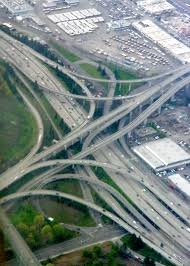 What's peculiar is once we've started on a singular path, mimesis keeps us locked into the system. We can pass all this landscape and watch as potential for freedom passes us by at every second of the day and we can still choose to follow the rules of the road. Why? Because these roads give us options. We can turn left and right and follow whatever road we want. The system is what gives us our options. The system lays out the roads. Social psychology dictates that we cannot desire solely on our own. Let me say that again: We cannot desire solely on our own. We know what to do for basic survival, like eat, drink, and find shelter. Once those basic needs are taken care of, people do not know what to do with themselves. We need other people to tell us what to desire. We need options. The roads are paved and laid out in front of us before we are born.The current corporate philanthropic venture of supporting "cradle to career" programs speaks best to how human programming works. We are taught from infancy to build certain characteristics, the rich have creative freedom while the poor learn rote behavior, but both are geared toward "staying on the road" and "maintaining the road as the only viable option."Parents want the best for their children (I should know I have six) so we teach our children those characteristics and believe this is the best modality for survival. What we don't consider is that we--ourselves--have been trained to desire the system we've been born in. It doesn't necessarily mean it's the best. It just means it's what we know. We get hints of that when we see certain people of certain communities mangled in crashes alongside the road. In disproportionate numbers. But we are so bought into the system, we assume the police are going to do the right thing and take care of those people and somehow the rules of the road will keep everyone safe. And we just keep driving by. Never taking action ourselves to stop and help. And we teach our children to do the same.
What's peculiar is once we've started on a singular path, mimesis keeps us locked into the system. We can pass all this landscape and watch as potential for freedom passes us by at every second of the day and we can still choose to follow the rules of the road. Why? Because these roads give us options. We can turn left and right and follow whatever road we want. The system is what gives us our options. The system lays out the roads. Social psychology dictates that we cannot desire solely on our own. Let me say that again: We cannot desire solely on our own. We know what to do for basic survival, like eat, drink, and find shelter. Once those basic needs are taken care of, people do not know what to do with themselves. We need other people to tell us what to desire. We need options. The roads are paved and laid out in front of us before we are born.The current corporate philanthropic venture of supporting "cradle to career" programs speaks best to how human programming works. We are taught from infancy to build certain characteristics, the rich have creative freedom while the poor learn rote behavior, but both are geared toward "staying on the road" and "maintaining the road as the only viable option."Parents want the best for their children (I should know I have six) so we teach our children those characteristics and believe this is the best modality for survival. What we don't consider is that we--ourselves--have been trained to desire the system we've been born in. It doesn't necessarily mean it's the best. It just means it's what we know. We get hints of that when we see certain people of certain communities mangled in crashes alongside the road. In disproportionate numbers. But we are so bought into the system, we assume the police are going to do the right thing and take care of those people and somehow the rules of the road will keep everyone safe. And we just keep driving by. Never taking action ourselves to stop and help. And we teach our children to do the same. The more times you stop. The more you are no longer afraid of the wilderness. The more you will change mimesis. We can show people how to travel off the beaten path by our own actions. If social psychology is correct and we do not know how to desire solely on our own, then it is up to us to show people how to desire a different direction. More importantly, show people there is nothing to be afraid of. Fear confines us to the rules of the road. But to be fearless, stop the vehicle, and take steps into the wilderness can give us options we've never conceived . Who knows? Maybe those options won't leave anyone mangled. The road we're on has historically proven there will always be victims. Break away and do something different. Step away from the "ho-hum it's been done," and reconstruct mimetic design.
The more times you stop. The more you are no longer afraid of the wilderness. The more you will change mimesis. We can show people how to travel off the beaten path by our own actions. If social psychology is correct and we do not know how to desire solely on our own, then it is up to us to show people how to desire a different direction. More importantly, show people there is nothing to be afraid of. Fear confines us to the rules of the road. But to be fearless, stop the vehicle, and take steps into the wilderness can give us options we've never conceived . Who knows? Maybe those options won't leave anyone mangled. The road we're on has historically proven there will always be victims. Break away and do something different. Step away from the "ho-hum it's been done," and reconstruct mimetic design.
Support a Native owned Etsy shop, Allies United, where I offer unique merch for allies of social justice movements, like MMIW, Native Lives Matter and Black Lives Matter. Take a look inside my Etsy shop here: etsy.com/shop/AlliesUnited.
(Works Cited: The images were borrowed from Wikimedia Commons, PxHere, nps.gov, and Wikipedia.)
Boxes Echo Eternal Conformity
We love the sound of our own voices, and there's a condition associated with narcissism that calms people when they look at pictures of themselves (if you've ever wondered why we take so many selfies). The same goes for values. We like to hear our own values echoed back to us. If we took a real look at our circle of friends we'd find people who have the same value system. Yeah, there might be some differences in opinion, but no deal breakers. Just echoes of eternal conformity.
 I get agitated when I feel comfortable. I'm not sure why. Maybe I'm genetically predisposed to nonconformity (as my Aspie profile seems to dictate). Because of this I tend to like being in uncomfortable situations. I like being the odd one out. I don't make it into people's circle of friends. Living a life on the periphery leaves me with a life lived under the bus, true, but I wouldn't have it any other way. If someone else doesn't disrupt my normalcy, I'll disrupt it myself, and no one wants that because it's not pretty.
I get agitated when I feel comfortable. I'm not sure why. Maybe I'm genetically predisposed to nonconformity (as my Aspie profile seems to dictate). Because of this I tend to like being in uncomfortable situations. I like being the odd one out. I don't make it into people's circle of friends. Living a life on the periphery leaves me with a life lived under the bus, true, but I wouldn't have it any other way. If someone else doesn't disrupt my normalcy, I'll disrupt it myself, and no one wants that because it's not pretty.
 Life on the periphery offers perspectives outside the box (when I say box I'm meaning myopic points of view), and I tend to analyze power structures and how people try to control other people. I'm not sure why I do this. I could focus on a million other things, but for some reason I have this moral (maybe overly righteous) compass that is insulted by destructive human actions (another Aspie syndrome). I understand and don't understand why we destroy each other. Because of this my brain is constantly trying to discover solutions to our worst human tendencies. I want to fix populations, systemically, to stop destroying, ultimately, themselves.
Life on the periphery offers perspectives outside the box (when I say box I'm meaning myopic points of view), and I tend to analyze power structures and how people try to control other people. I'm not sure why I do this. I could focus on a million other things, but for some reason I have this moral (maybe overly righteous) compass that is insulted by destructive human actions (another Aspie syndrome). I understand and don't understand why we destroy each other. Because of this my brain is constantly trying to discover solutions to our worst human tendencies. I want to fix populations, systemically, to stop destroying, ultimately, themselves.
 That exposes where my own control issues coincide with the rest of the population. I'm not a saint and definitely not a purist. The evangelical engine doesn't only exist in major religions, but can speak to a quality in certain people to want other people to stop doing terrible things. But I like to think I also exist primarily on the periphery of myself, because I'm real good at self reflection. I'm good at criticizing myself and my own thought processes. I'm okay with being wrong, because being wrong is uncomfortable and that's the state of being I'm most comfortable in.
That exposes where my own control issues coincide with the rest of the population. I'm not a saint and definitely not a purist. The evangelical engine doesn't only exist in major religions, but can speak to a quality in certain people to want other people to stop doing terrible things. But I like to think I also exist primarily on the periphery of myself, because I'm real good at self reflection. I'm good at criticizing myself and my own thought processes. I'm okay with being wrong, because being wrong is uncomfortable and that's the state of being I'm most comfortable in.
 If I lived in a box of echoes, if I'm just as subject as anyone else, then I'd live in a box of echoes that disrupts other echoes, and subsequently other boxes. Maybe in my desire to stop destruction I am a destroyer, and my reflection is too ugly to look at because I don't want to realize it takes the collapse of one universe to begin the expanse of another, to rebuild one box we have to use the bloody walls from one taken apart. Maybe I want to keep my hands clean, and keep your hands clean, but in doing so...maybe it takes multi-unanimous conformity. Of which I cannot in good conscience participate.
If I lived in a box of echoes, if I'm just as subject as anyone else, then I'd live in a box of echoes that disrupts other echoes, and subsequently other boxes. Maybe in my desire to stop destruction I am a destroyer, and my reflection is too ugly to look at because I don't want to realize it takes the collapse of one universe to begin the expanse of another, to rebuild one box we have to use the bloody walls from one taken apart. Maybe I want to keep my hands clean, and keep your hands clean, but in doing so...maybe it takes multi-unanimous conformity. Of which I cannot in good conscience participate.
Support a Native owned Etsy shop, Allies United, where I offer unique merch for allies of social justice movements, like MMIW, Native Lives Matter and Black Lives Matter. Take a look inside my Etsy shop here: etsy.com/shop/AlliesUnited.
When Girard Married Freire: The Scapegoat Rides Praxis into the Sunset
It's about to get real nerdy in here. Turn around and walk away. Don't read any further. If you pass beyond this point of warning then all consequences will be your own and you will be held accountable. So... Do the right thing. Just stop reading now.If you're still with me, sucks to be you. But you were warned. What I'm about to do is elaborate on Paulo Freire's praxis by using Rene Girard's mimetic theory, See? I told it was getting nerdy up in this piece.Girard is the lens. Freire's praxis is the subject of study. If you've read any of my previous posts you'll have an understanding of Girard's mimetic theory. He basically, to make a point quickly, states mimesis is the "fuel" that creates culture, and the first pit stop is scapegoating. So when we're stressed, we scapegoat. We find someone to blame, we blame the person or people for all our problems (even if it's irrational), and then we either banish the scapegoat or kill the scapegoat (in either scenario we then idolize the scapegoat). This sequence makes us feel "all better," like momma patting us on the head when we have a booboo. Girard argues in the ritualization of scapegoating we create culture. We create customs, rituals, practices, celebrations, feasts, whatever you want to call it, we create culture through this production.If we use a major religion as way to look into Girard's point, such as Christianity, Girard would say Jesus and Satan are both scapegoats. One scapegoat "saves people," while the other scapegoat "seeks revenge," but both scapegoats, ultimately, keep people from fighting each other.Now Girard focuses on mimetic rivalry as his main point, and scapegoating is the only thing that stops mimetic rivalry. In other words, when "in fighting" occurs, we find a scapegoat so "we can all just get along." Mimesis is a nerdy way to say "monkey see, monkey do."In a Native context, we can say the current paradigm of colonization has set in motion a mimesis based in conquest (and all the paracolonial conditions it comes with). So this is where I bring in Friere. Friere's praxis is a heavily used (almost over used) term to show the societal "flip" when the oppressed minority reclaims power (education) from the colonizer and subsequently finds herself at a crossroads. "Will I use my power (education) to become a savior or the devil?" we might imagine a conscientious minority asking. This is a big subject of debate for a number of reasons. From my vantage point, it looks like the #1 reason is "the dominant culture doesn't want to lose power and become the victim of revenge." If anything hurts the dominant cultures' feelings, then we have to talk it to death as they can release all their anxiety onto the world. Take a chill pill papa smurf, this narrative is about Smurfette.Ultimately, the question becomes: Has the oppressed been infected with the disease of power by the oppressor? Do the oppressed not know where they end and the oppressor begins? If Girard had anything to say on this Native discourse (he's dead so good luck with that), then he would argue Natives are scapegoats returned, either back from the dead or back from banishment, like Jesus and Satan.So have I seen evidence of how the "flip" is going to play out? On a day to day basis, it looks like Natives love some power and we abuse each other with it (which is what the colonizer designed to happen, aka colonial mimesis). But as far as organizing that power to exact revenge against the dominant culture, I haven't seen it. We've all seen Natives function as "savior," when NODAPL attempted to stand up for clean water rights for everyone. On a macro level, Natives tend to do what's the best for everyone, which is why most of us are liberal in politics. On the micro level, Natives tend to do what's best for themselves, which is why most of us are socially conservative.So there it is: in all it's nerdery. Do you think Girard's scapegoat theory is applicable to Frerie's praxis? How do you think this will play out in a Native context?
If Girard had anything to say on this Native discourse (he's dead so good luck with that), then he would argue Natives are scapegoats returned, either back from the dead or back from banishment, like Jesus and Satan.So have I seen evidence of how the "flip" is going to play out? On a day to day basis, it looks like Natives love some power and we abuse each other with it (which is what the colonizer designed to happen, aka colonial mimesis). But as far as organizing that power to exact revenge against the dominant culture, I haven't seen it. We've all seen Natives function as "savior," when NODAPL attempted to stand up for clean water rights for everyone. On a macro level, Natives tend to do what's the best for everyone, which is why most of us are liberal in politics. On the micro level, Natives tend to do what's best for themselves, which is why most of us are socially conservative.So there it is: in all it's nerdery. Do you think Girard's scapegoat theory is applicable to Frerie's praxis? How do you think this will play out in a Native context?
Support a Native owned Etsy shop, Allies United, where I offer unique merch for allies of social justice movements, like MMIW, Native Lives Matter and Black Lives Matter. Take a look inside my Etsy shop here: etsy.com/shop/AlliesUnited.
(Disclaimer, aka Works Cited: The image was borrowed from www.hediedformygrins.blogspot.com)
Scrutiny of Dark Skinned Males
Do you think you watch the behavior of dark skinned males more closely than other people? Maybe you feel you don't. Then you have to watch this video:
Support a Native owned Etsy shop, Allies United, where I offer unique merch for allies of social justice movements, like MMIW, Native Lives Matter and Black Lives Matter. Take a look inside my Etsy shop here: etsy.com/shop/AlliesUnited.
https://www.youtube.com/watch?v=ucEAcIMkS0c&list=PLvNwXBBRe6tbZRj5e6t6DxnnByN4sj13R&index=1
The Art of Running Into Flames
When I think about creativity, or the impulses to create, and how there is a certain bravery or cowardice involved, I think of forest fires. You see, my cousins were fire fighters for the Kiowa Tribe of Oklahoma. I love it when they regale me with stories of their adventures and sometimes these are about disaster relief, like following Hurricane Katrina, and other times they are about fighting large forest fires in Colorado or California. They tell me, "If the wind catches the flames and rushes the fire toward you, you have to decide: are you going to run through the flames?"
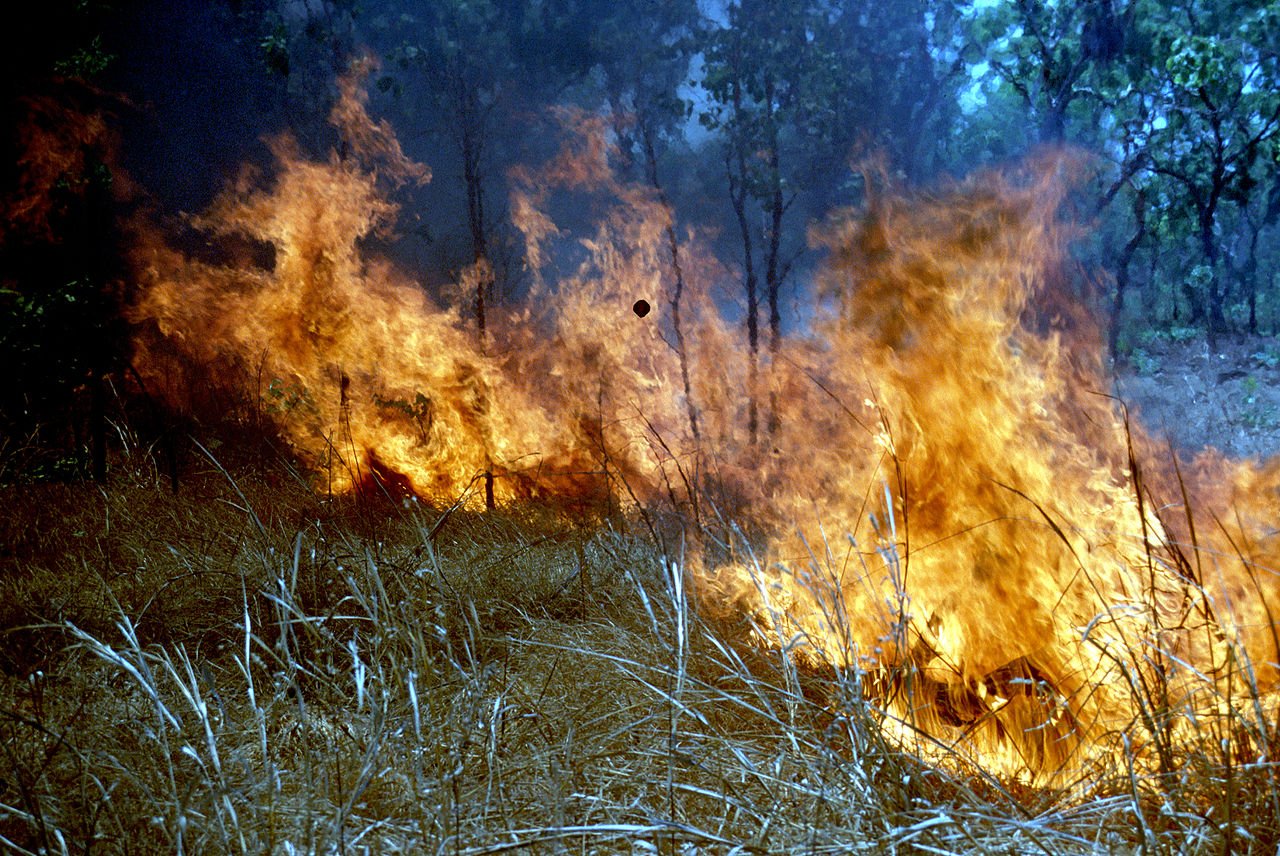 On the other side of the fire is safety. But you have to have a working knowledge of how fire thinks and the natural elements and maybe even the cosmos.
On the other side of the fire is safety. But you have to have a working knowledge of how fire thinks and the natural elements and maybe even the cosmos.
Creativity is the same, or why we create. I think of this stuff often. Usually in early morning hours when I'm drinking my coffee. But this morning I thought about creativity and how to create strong fiction. I thought about being vulnerable and telling on yourself. This made me think of artists having to face the worst parts of themselves.
I don't know if this is an act of bravery or an act of cowardice. It seems I'm creative out of survival and in coping with the traumas of life I create. I play with my toys and pretend the world isn't falling apart. But in that pretend I'm also facing the thing I'm hiding from. As I write or play guitar or paint on canvas or sing a song I have to confront the trauma in order to be my most creative.
For the story to be perfect, I have to be honest about who I am and what I was and who I'm becoming. I have to tell on myself. I have to confront not only those clichéd demons but more importantly my victimhood.
I'm running into the flames, whether out of instinct or awareness, I know on the other side of the flames there's safety. But is it an act of bravery or cowardice? Am I running into the flames to save myself?
Nonetheless, either way, I create.
Support a Native owned Etsy shop, Allies United, where I offer unique merch for allies of social justice movements, like MMIW, Native Lives Matter and Black Lives Matter. Take a look inside my Etsy shop here: etsy.com/shop/AlliesUnited.